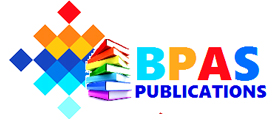Perceptions of Teacher Education Students in Kerala about Information Literacy Skills: An assessment
9.38$
Cherian K George, Dr. Chandrashekara M
Library Progress International
Vol.42, No.2, July-December 2022: P.252-264
DOI: 10.5958/2320-317X.2022.00028.9
Original Article
Description
Perceptions of Teacher Education Students in Kerala about Information Literacy Skills: An assessment
*Cherian K George, **Dr. Chandrashekara M
Author’s Affiliation:
*Librarian, Union Christian College, Aluva, Kerala – 683102 and (Research Scholar, Department of Studies in Library and Information Science University of Mysore, Manasagangothri, Karnataka – 570005)
E-mail: jebygeo@gmail.com
**Professor, Department of Studies in Library and Information Science, University of Mysore, Manasagangothri, Karnataka – 570005
E-mail: chandra.uom@gmail.com
Corresponding Author: Cherian K George, Librarian, Union Christian College, Aluva, Kerala – 683102 and (Research Scholar, Department of Studies in Library and Information Science University of Mysore, Manasagangothri, Karnataka – 570005)
E-mail: jebygeo@gmail.com
(Received on 28.03.2022, Revised on 28.05.2022, Accepted on 13.07.2022, Published on 15.12.2022)
How to cite this article: Cherian K George, Chandrashekara M. (2022). Perceptions of Teacher Education Students in Kerala about Information Literacy Skills: An assessment. Library Progress International, 42(2), 252-264.


